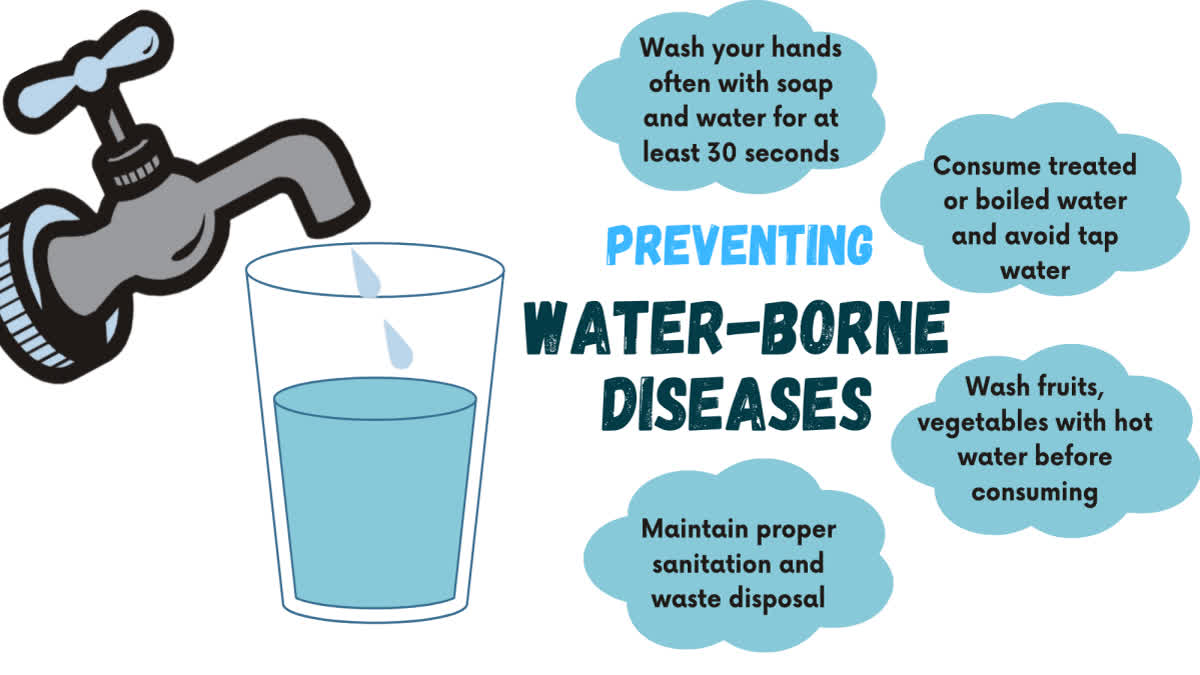Hyderabad: Waterborne illnesses stem from the consumption or contact with contaminated water sources, leading to the transmission of harmful pathogens. These diseases are often contracted through the use of infected water for drinking, food preparation, cleaning, and other activities. Notable examples of waterborne diseases encompass cholera, dysentery, giardiasis, and hepatitis A.
The severity of waterborne diseases spans a spectrum, ranging from mild discomfort to severe organ damage. Consequently, it is imperative for individuals to adopt measures to thwart these illnesses. Here are some effective strategies to avert falling victim to waterborne diseases:
Opt for Purified Water: To ensure safety, it is advisable to exclusively consume treated or boiled water, especially in areas where tap water quality is dubious.
Prioritize Hand Hygiene: Regularly and thoroughly wash hands with soap and clean water for at least 30 seconds, particularly before and after eating, as well as after using the restroom.
Embrace Hygienic Bathing Practices: Refrain from bathing in untreated water bodies that may harbor harmful microbes. If unavoidable, individuals should prevent water from entering their mouth, nose, or eyes to avoid ingestion of contaminants.
Exercise Care in Food Handling: Thoroughly wash fruits, vegetables, and other edibles with hot water, and cook foods using clean water to avert potential contamination.
Uphold Sanitary Measures: Proper waste disposal and sanitation practices are crucial to prevent the pollution of water sources.
Remain Vigilant: Stay informed about water quality conditions in your vicinity and heed local advisories to make well-informed choices concerning your environment.
Boil Water for Consumption: In instances of uncertain water quality, boiling the water for at least one minute can effectively eliminate harmful microorganisms.
Avoid Raw Foods and Ice: Refrain from consuming ice, uncooked salads, and unpeeled fruits, particularly when traveling to regions where water quality standards are questionable.
Shielding oneself from waterborne diseases necessitates a proactive approach, encompassing the aforementioned guidelines. It is vital to acknowledge that prevention holds the key to diminishing the risks posed by these diseases and safeguarding personal well-being.
The menace of waterborne diseases underscores the importance of universal access to clean and safe water sources. Governments, organizations, and communities should collaborate to enhance water treatment and distribution systems, promote hygiene awareness, and bolster sanitation infrastructure. Through concerted efforts, the global community can take significant strides toward eradicating the burden of waterborne diseases and creating a healthier and safer world for all.



